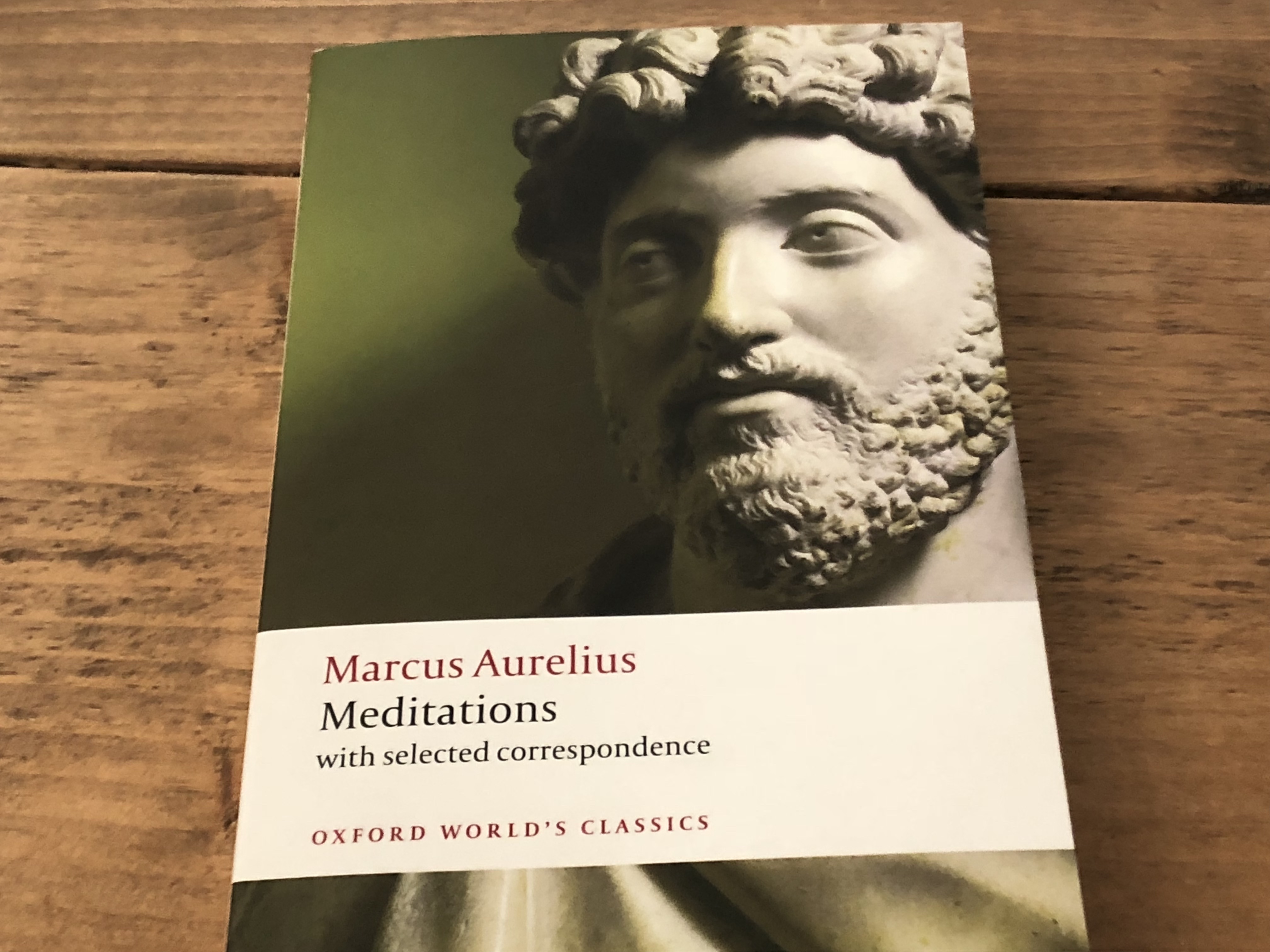
Welcome to the captivating realm of **Marcus Aurelius**, who holds the distinguished title of the last of the **Five Good Emperors** of Rome. His reign, which spanned from 161 to 180 CE, represents a crucial chapter in the annals of Roman history, signaling the conclusion of a remarkable golden age characterized by relative peace and prosperity. But what set this philosopher-king apart from his contemporaries? Marcus Aurelius was not just a ruler; he was a Stoic philosopher whose writings, particularly his meditations, continue to resonate with people today. His commitment to duty, virtue, and rational thought in the face of adversity offers timeless wisdom. Join us as we explore the life, philosophy, and enduring legacy of this remarkable figure, delving into the principles that guided him and the impact he had on both his empire and future generations.
Early Life: A Noble Beginning

Born into Prominence
Marcus Aurelius entered the world on April 26, 121 CE, in the heart of Rome, a city steeped in history and power. He was born into a family of considerable influence and status, which set the stage for his remarkable future. His paternal grandfather had held the esteemed position of consul not once, but twice, showcasing the family’s longstanding connection to Roman governance. Additionally, his maternal grandmother was the heiress to a vast fortune, further solidifying the family’s prominence in society. With such a prestigious lineage, it is no surprise that Marcus’s early life was marked by privilege and opportunity, often described as starting life with a proverbial silver spoon in his mouth.
Adoption and Ascension
At the tender age of 17, Marcus Aurelius’s life took a pivotal turn when he was adopted by his uncle, the esteemed Antoninus Pius, who would go on to become emperor of Rome. This significant adoption was not merely a familial gesture; it was a strategic move that positioned Marcus as a future leader of the Roman Empire. From this young age, he was immersed in the intricacies of governance and the responsibilities that came with leadership. Imagine the weight of such expectations resting on the shoulders of a teenager, being groomed for one of the most powerful roles in the ancient world! This early exposure to the workings of the empire would profoundly shape his character and philosophy, preparing him for the challenges that lay ahead.
The Philosopher-King: Stoicism and Meditations

Introduction to Stoicism
Marcus Aurelius, the Roman Emperor and philosopher, is perhaps most renowned for his profound work titled Meditations. This collection of personal writings offers a glimpse into his innermost thoughts and reflections on Stoic philosophy. At its core, Stoicism emphasizes the significance of virtue, wisdom, and self-control, serving as a philosophical framework that can guide individuals through the myriad challenges life presents. By embracing Stoicism, one can cultivate resilience and maintain a sense of inner peace amidst external turmoil, much like having a personal guidebook that illuminates the path through life’s complexities.
Writing the Meditations
Interestingly, Meditations was composed during Marcus Aurelius’s military campaigns, a time when he faced numerous adversities. It is important to note that these writings were never intended for public consumption; rather, they represent a candid and unfiltered exploration of his personal struggles and philosophical musings. The thought of writing down one’s deepest reflections while stationed on the battlefield, surrounded by the chaos of war, is both striking and poignant. It reveals the depth of his character and his commitment to self-improvement, even in the most challenging circumstances.
Key Themes in Meditations
- Impermanence: One of the central tenets of Stoicism highlighted in Meditations is the idea that everything in life is temporary. Recognizing the fleeting nature of existence encourages individuals to appreciate the present moment and to understand that both joy and suffering are transient.
- Self-Discipline: Another vital theme is the importance of self-discipline. Marcus Aurelius emphasizes the necessity of controlling one’s reactions to external events, advocating for a measured and thoughtful approach to life’s challenges rather than succumbing to impulsive emotions.
- Universal Reason: Lastly, Aurelius reflects on the concept of universal reason, suggesting that all human beings are interconnected and part of a larger whole. This perspective fosters a sense of empathy and encourages individuals to act in harmony with the greater good.
Reign as Emperor: Challenges and Triumphs

Co-Emperor with Lucius Verus
Following the death of Antoninus Pius, Marcus Aurelius ascended to the throne as emperor, embarking on a unique and unprecedented journey by sharing the imperial power with his adoptive brother, Lucius Verus. This partnership was a significant milestone in Roman history, as it marked the first instance of two individuals jointly ruling the vast Roman Empire. The concept of teamwork at such a high level of governance was revolutionary, setting a precedent for future leadership structures. Together, they navigated the complexities of ruling an empire, demonstrating that collaboration could be a powerful tool in the face of challenges.
Military Campaigns
Marcus Aurelius’s reign was characterized by a series of military challenges that tested his leadership and strategic abilities. He faced formidable adversaries, including the Parthians in the east and various Germanic tribes along the northern borders of the empire. Balancing the responsibilities of governance with the demands of warfare was no small task; it required immense skill and resilience. Imagine the pressure of managing a vast empire while simultaneously leading troops into battle against invading forces! Marcus’s ability to juggle these dual roles showcased his dedication to both his people and the security of the empire.
Table of Major Military Campaigns
| Year | Campaign | Outcome |
|---|---|---|
| 161-166 | Parthian War | Victory |
| 167-180 | Marcomannic Wars | Prolonged Conflict |
Legal Reforms: A Just Ruler

Advocating for the Less Fortunate
Marcus Aurelius was not just a warrior; he was also a reformer. He introduced measures to improve the legal status of slaves, widows, and minors. He believed in justice and fairness, which is a hallmark of a great leader.
Criticism and Controversy
Despite his good intentions, Marcus faced criticism, especially regarding his stance on Christian persecution. While he disliked Christians, there was no systematic persecution during his reign. This nuanced position shows the complexities of leadership.
Philosophical Legacy: A Lasting Impact

Influence on Future Generations
Marcus Aurelius’s thoughts have influenced countless leaders and thinkers throughout history. His emphasis on virtue and rationality resonates even today. Isn’t it fascinating how ideas can transcend time?
Modern Stoicism
Today, Stoicism is experiencing a revival. People are turning to Marcus’s teachings for guidance in a chaotic world. It’s like having a wise friend to turn to when life gets tough.

Marcus Aurelius passed away on March 17, 180 CE, marking the end of a significant chapter in Roman history. His reign symbolized the Golden Age of the Roman Empire, and his philosophical insights continue to inspire. So, what can we learn from this philosopher-king? Perhaps it’s the importance of resilience, wisdom, and compassion in leadership.
Final Thoughts

Marcus Aurelius was more than just an emperor; he was a thinker, a warrior, and a reformer. His life teaches us that true leadership is about serving others and striving for virtue. So, the next time you face a challenge, remember the wisdom of Marcus Aurelius. After all, we all have a little philosopher-king within us!

